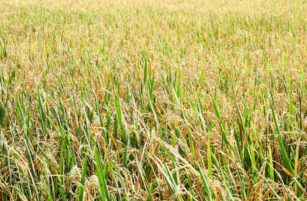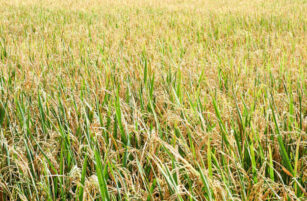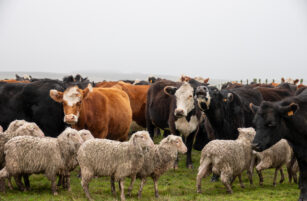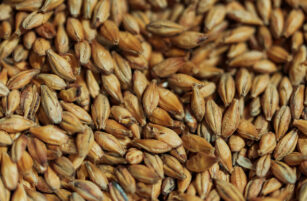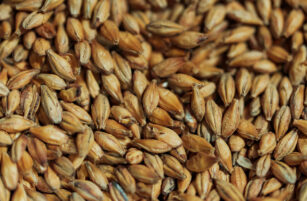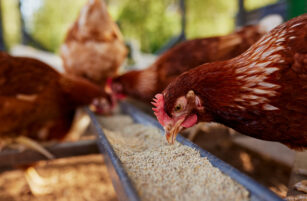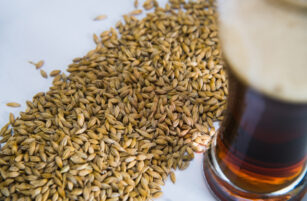Insight Focus
- Ukrainian grain storage crunch forecast
- German March retail food sales drop 5.4% on year
- Indian wheat output seen cut by heatwave
The problem of global food security cannot be solved without restoring Ukrainian agricultural production and Russian food and fertilizer output to the world market, UN Secretary-General Antonio Guterres was quoted by Reuters as saying.
Twenty five million tonnes of Ukrainian grain, due for export, is blocked because the Black Sea ports are closed, the UN’s Food and Agriculture Organization was quoted as saying by the BBC.
The FAO’s deputy director Josef Schmidhuber also told a news briefing in Geneva that around 700,000 tonnes of grain appeared to have gone missing, citing what he said was “anecdotal evidence” based on social media reports that Russian troops were stealing grain and agricultural equipment from Ukraine.
However, the news from Ukraine made the restoration of normal agricultural commodity production look unlikely. Analysts at Ukraine-based APK-Inform are forecasting a Ukrainian grains and oilseeds harvest in 2022 of 55.9m tonnes, down 34% year on year and the lowest in a decade, but the current export pace, domestic processing volumes and losses, mean carry-over stocks of grains and oilseeds could be up to 25.1m tonnes in 2021/22, 4.2 times more than a year earlier. This is creating a storage crunch for the new crop, with APK-Inform predicting 16.3m tonnes will not be able to be stored.

Damage to Ukraine’s Grain Sector
The Ukrainian government has also accused Russian forces of stealing grain for export, the official Ukrinform news agency reported. It quoted First Deputy Agriculture Minister Taras Vysotsky as saying this involved several hundred thousand tonnes of grain from the Kherson, Zaporizhzhia, Luhansk and Donetsk regions. He added that there were about 1.5m tonnes of grain stocks in those regions. “This is a significant stock. At international prices, it is worth hundreds of millions of dollars. And there is a great risk that it will simply be stolen and taken away to Russia’s benefit,” Vysotsky said.
FAO’s Deputy Director Josef Schmidhuber also said around 700k tonnes of grain appeared to have gone missing, citing what he said was “anecdotal evidence” based on social media reports that Russian troops were stealing grain and agricultural equipment from Ukraine, the BBC reported.
Russian troops in the occupied city of Melitopol stole all the machinery from a farm equipment dealership worth USD 5m and shipped it to Chechnya, CNN
reported, quoting a Ukrainian businessman in the area. However, there was a flaw in the scheme. “When the invaders drove the stolen harvesters to Chechnya, they realized that they could not even turn them on, because the harvesters were locked remotely,” the businessman said.

German Agriculture Minister Cem Özdemir accused Russia of wanting to remove Ukraine as a competitor in the global grains market long term by targeting grains infrastructure. “Russia is seeking to exercise pressure using growing global hunger. At the same time the massive rise in market prices suits Russia because it brings money into the country,” he told RedaktionsNetzwerk Deutschland in an interview (in German).
Knock-On Effects for Germany
In Germany itself, a survey by the Ifo economic think tank showed that German industry and wholesalers were struggling to replace products from Russia, Ukraine and Belarus.
Only 13.8% of industrial companies with problems sourcing from these countries would be able to completely replace their sources of supply in the short term. For 43.4%, this was only partially possible. A further 16.3% answered that other sources of supply were not economically viable, and 13.8% stated that this was not possible at all.
In wholesale, only 7.4% said it was entirely possible to find new sources of imports at short notice, while 42.0% said it was possible in some cases. A switch made no economic sense for 16.0%, and wasn’t possible at all for 17.3%, Ifo said.
Handelsblatt reported (in German) that 11% of large companies in Europe’s biggest economy were having difficulty importing agricultural commodities as a result of the war in Ukraine, citing a survey by the Federal Association for Stock Management, Procurement and Logistics (BME).

The resulting upward pressure on prices has fed through into retail sales. In March, food sales fell 5.4% year on year in real terms compared with a 2.7% fall in overall sales. In the press release on the data (in German), the Federal Statistics Office (Destatis) said there had been sharply higher demand for products such as flour and cooking oil as a result of consumers stocking up because of the conflict in Ukraine but that this had not had a significant effect on the overall picture.
Kenya Looks to India, Serbia
Kenya is seeking to import wheat from India and Serbia to cushion consumers against the high cost of flour and to avert a shortage, The Star newspaper reported.
“We do not want to benefit because of problems in other countries but we also do not want to miss out on an opportunity. Serbia can play a big role in filling the wheat supply gap within East Africa,” The Star quoted Serbia’s Ambassador to Kenya, Dragan Zupanjevac, as saying.
Eastern Africa Grain Council Executive Director Gerald Masila told the paper that his organization and others had been in talks with the Kenyan government about the possibility of importing Indian wheat. However, there is a ban on Indian wheat imports because of the risk of the fungal disease Karnal Bunt (see picture). Masila urged the government to put in place measures to allow wheat imports from India.

India Hit by Heat Wave
There is also a question mark over how long India might be a source of wheat imports. Its wheat output looks likely to fall in 2022 after five consecutive years of record harvests, as a sharp, sudden rise in temperatures in mid-March cut yields. Reuters quoted a government note as saying wheat production could fall to 105m tonnes this year from 109.59m tonnes last year and an earlier government estimate of 111.32m tonnes.
India will allocate more rice instead of wheat for a food welfare programme that entitles millions of poor to 5 kg/month of free grain, Reuters reported, citing a government order.
The allocation of wheat for the Prime Minister’s Poor Welfare Grain Programme has been cut to 7.1m from 18.2m tonnes, while the allocation of rice has been raised to 32.7m from 21.6m tonnes.
Fertilizer Scramble
The crisis in Ukraine has not only sparked shortages in the grains market but also of fertiliser. Nigeria had to buy emergency supplies of Canadian potash in April after the country was unable to import the key fertilizer from Russia due to the impact of Western sanctions, Uche Orji, the head of Nigeria’s sovereign investment authority NSIA told Reuters.
Orji said Nigeria had enough potash inventories to cover 40% of blending demand and bought three cargoes of Canadian potash, which should arrive within the next month. Normally, the country takes five Russian cargoes a year.
On the other side of the Atlantic, Brazil’s new agriculture minister Marcos Montes will visit Jordan, Egypt and Morocco in what he termed “fertilizer diplomacy” to discuss increasing fertilizer imports, he fold Reuters. Brazil relies on imports for about 85% of its fertilizer needs and is concerned about a potential global shortage of the products after Western nations imposed sanctions on key producers Belarus and Russia, while China restricted exports.

The shortage of fertiliser boosted Canadian fertiliser producer Nutrien’s first-quarter profits. The company posted a tenfold year-on-year increase in its Q1 net earnings to USD 1.39b. The company also raised its full-year earnings guidance for 2022 to USD 16.20-18.70 a share from USD 10.20-11.80.



